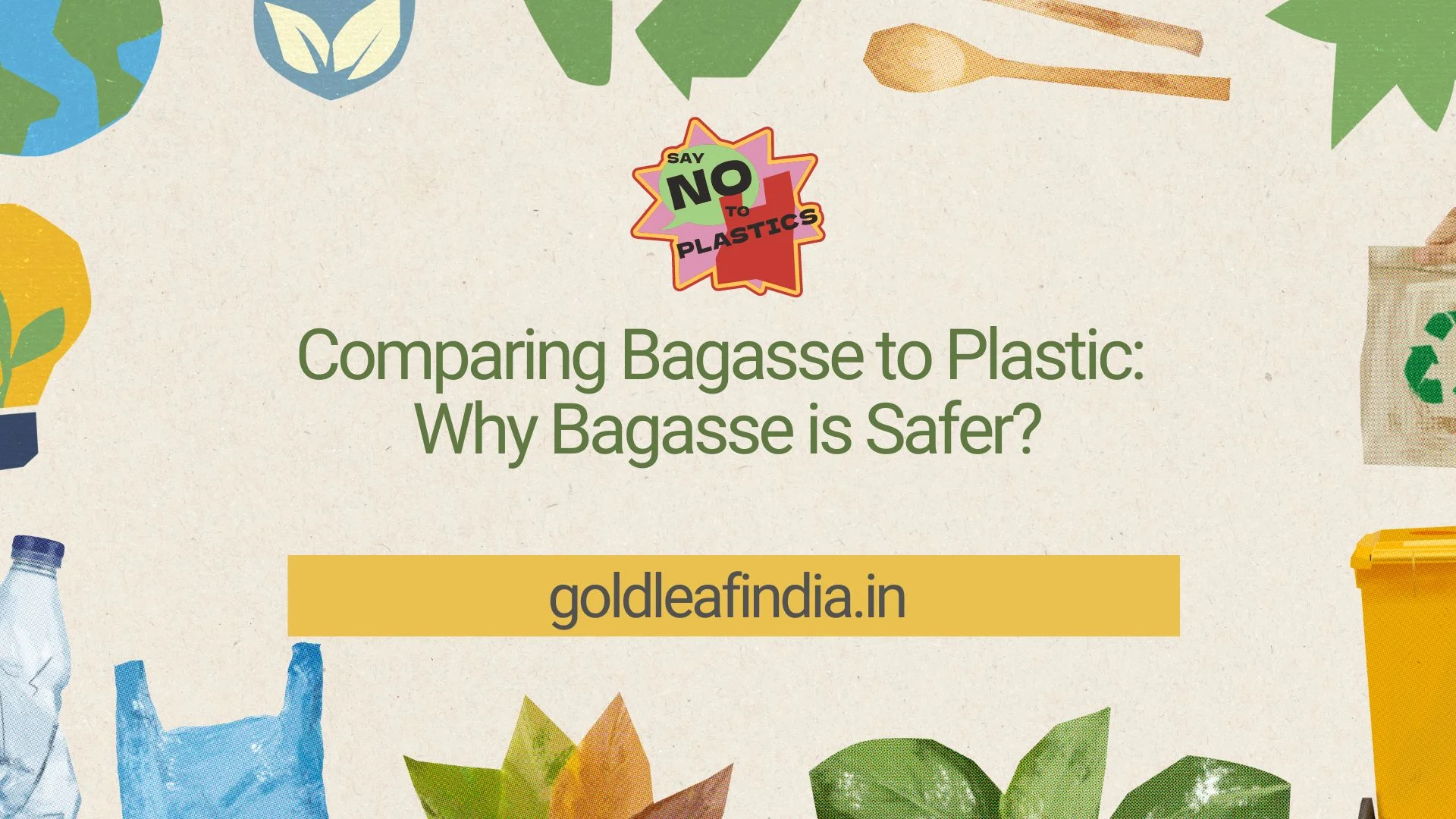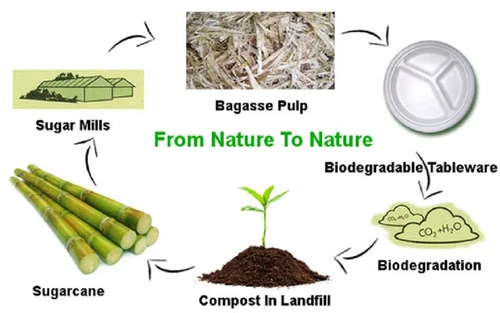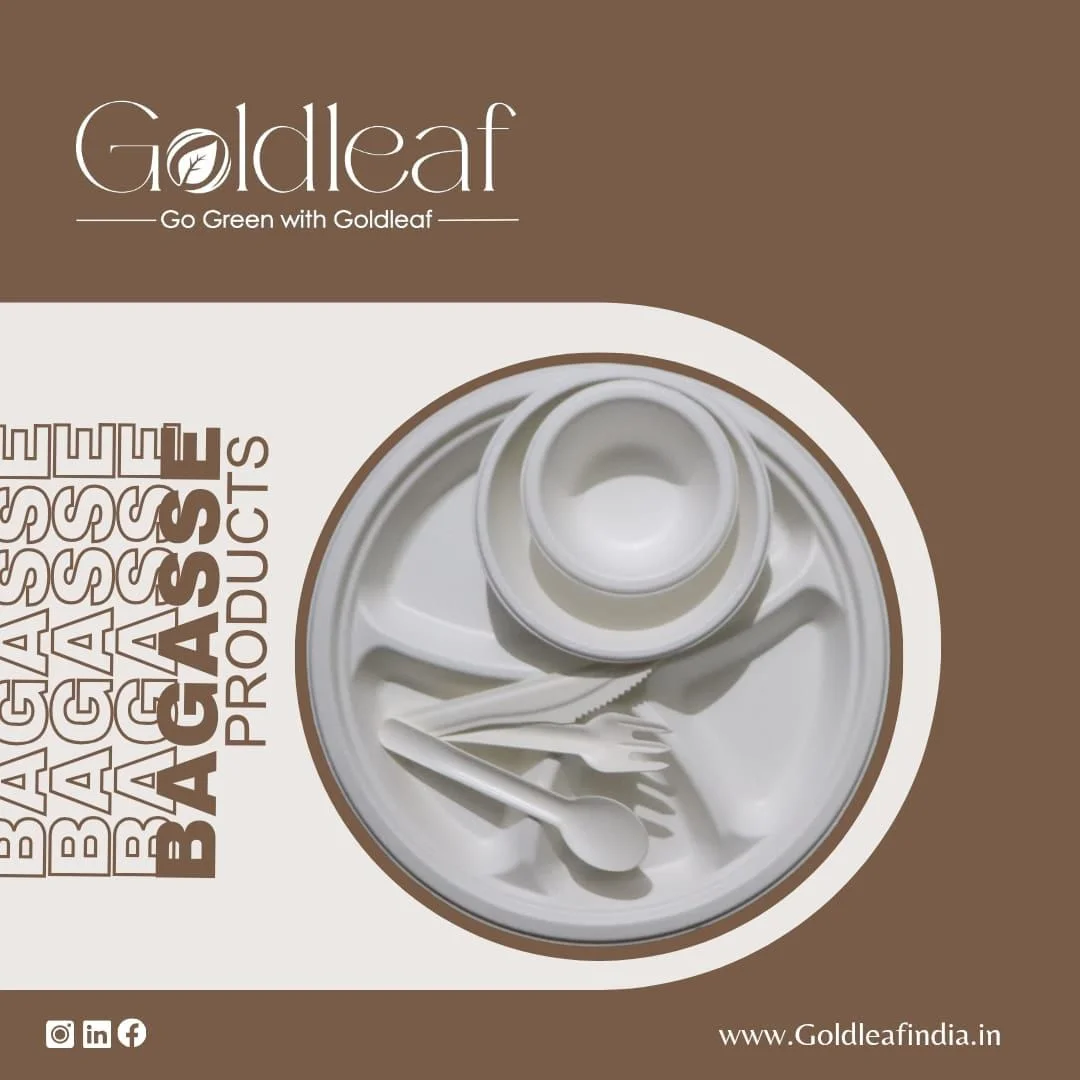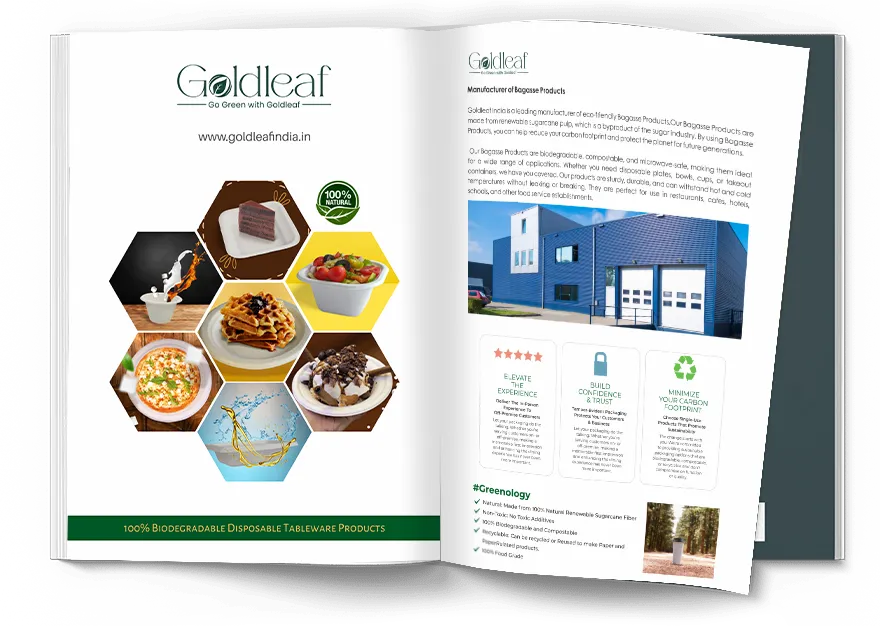Kết nối với nhóm của chúng tôi

- 3443
Thinking of alternatives to plastics in an eco-friendly way, one thing that would come to your mind would be bagasse. This sustainable material extracted from the fiber of sugarcane plants has several advantages over traditional plastics. You will read here why bagasse is not only a more environmentally responsible choice but also safe for consumers' health and the planet itself. We will point out the major dissimilarities between bagasse and plastic, considering their production processes, chemical makeup, and long-term ecological effects. Such information can help you make better decisions in the products that you use and how they relate to your health and the world around you.
What is Bagasse and How is it Made?
One such sustainable alternative is bagasse, a fibrous by-product derived from the processing of sugarcane. So, when you are having sugar or ethanol, actually, all that remains after juice extraction is this same bagasse. This increasingly popular eco-friendly material, apart from biodegradability, suggests versatile applications.

The Production Process
First, the harvesting of the sugarcane stalks is done, followed by transport to processing facilities, and a series of crushing and pressing operations to deliver their juice content. This leaves a fibrous pulp as the remaining raw material. Cleaning, refining, and processing remove any remaining sugar content.
From Waste to Resource
Historically considered agricultural waste, today bagasse finds its uses in many industries from making disposable tableware to packaging material, even paper products. That bagasse is transformed from something considered waste into a highly valued resource goes on to show how sustainability can be put into action.
By using bagasse, you are joining a circular economy in which agricultural by-products find new life, minimizing waste and its environmental impacts. This is an excellent example of innovative materials science that shows how industries adapt to the ever-increasing demand for eco-friendly alternatives against conventional plastics.
Benefits of Using Bagasse Products Over Plastic
Environmental Advantages
By using such bagasse products and discarding plastics, you are doing a great service to the environment. This is made of sugarcane fiber, making it a renewable resource that is naturally biodegradable within 30-90 days. While plastic takes hundreds of years to decompose, it results in long-lasting pollution. By doing so, you are reducing your carbon footprint and helping to support sustainable practices.
Health and Safety Benefits
Health and safety benefits Bagasse products undoubtedly outplay plastic products with respect to health and safety benefits. Bagasse, unlike some plastic materials that have been known to leach harmful chemicals into food, does not contain toxic and carcinogenic substances. This makes it a much safer material in food contact applications such as food packaging and disposable tableware. These products that come from bagasse are microwave-safe; they can become very hot without melting and also don't release harmful substances.
Economic and Practical Considerations
Switching to bagasse products will be economically viable in the long run. If it is somewhat expensive at the start, the environmentally good impact and reduced waste management cost shall set things straight. Durability of the bagasse products and functionality make them as good as plastic in offering a similar user experience while not compromising on quality or performance level.
Innovative Bagasse Products Available in the Market
Within the last few years, you would have across products made from bagasse in your daily life. Across various industries, these plastic alternatives are on their way to becoming prolific—rendering the best available options for sustainability without loss of functionality.

Packaging of Food
Bagasse has reinvented food packaging. You will get disposable plates, bowls, and takeout containers made with this by-product of sugarcane. The items are biodegradable, microwaveable, and can hold hot and cold foods equally well.
Beverage Containers
Innovative companies have come up with cups and lids made from bagasse for both hot and cold beverages. These products bring the same convenience as plastic ones but with much lesser harm to the environment.
Personal and Home Care
You might be surprised where you might find a sack. Health toothbrushes with sack handles and eco-friendly soap dishes definitely are gaining popularity. Some companies even utilize bagasse in making biodegradable pots for plants and seedlings.
By choosing these innovative bagasse products, not only are you reducing plastic wastage, but you are also contributing towards the circular economy. With evolving technology, more creative applications of this versatile material will be in the market.
Conclusion
While thinking of alternatives to plastic, one comes across a safer and more sustainable material: bagasse. Its biodegradability, reduced carbon footprint, and lack of harmful chemicals make it an environmentally responsible choice. By using bagasse-made products, one helps in the reduction of plastic pollution and ensures protection to the ecosystem. While there are certain issues to be addressed regarding its scalability and price, the pros of using bagasse far outweigh these short-term problems.
As consumer demand continues to rise and the production technology is improved, in the long run, bagasse may stand out more capable of replacing plastic across a wide variety of industries. By making informed choices, for example choosing eco friendly alternatives like bagasse, you will be actually really doing so to see a world that is much healthier and cleaner for our planet.
© 2024 , Goldleaf ,
Tất cả quyền được bảo lưu.
Made & Managed by Lightlink Solutions




